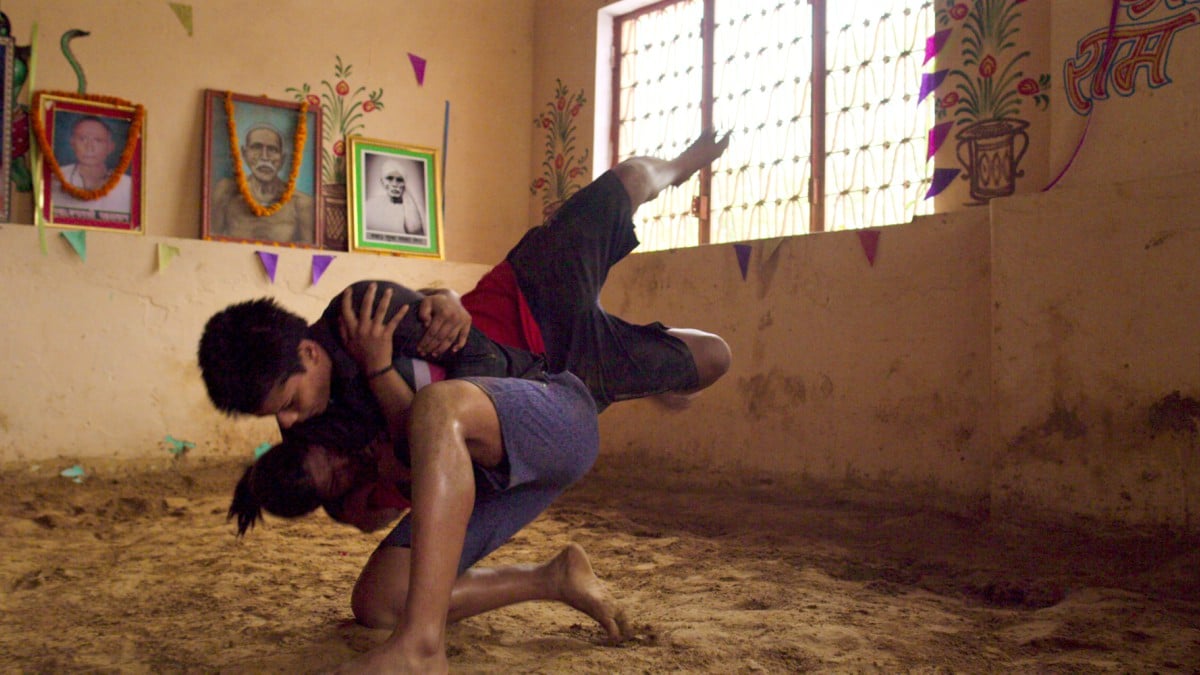
In the United States, sometimes it can be easy to get stuck inside a bubble and believe this country alone has the best things to offer.
This is especially true with sporting events thanks to the commercialization of the NFL, NBA, NHL, and so many more. These sporting events almost turn into yearly holidays when the championships arrive.
Netflix’s new docu-series titled Home Game branches outside of the things we know and takes a deep-dive into some of the most surprising competitive sports around the globe.
And honestly, it’s a fascinating exploration of not just the games, but how the games shape the culture within them.
But is it worth a binge this weekend? Here is our full review of the Netflix series Home Game.
Home Game review: Should you watch Netflix’s docu-series about global sports?
Home Game is an eight-episode series that globe-trots around the world, highlighting some of the craziest games across cultures.
The series is narrated by the incredible British actor Mark Strong (Kick-Ass, 1917) and touches on various sporting events that range from strange and dangerous to spectacular.
Some of the games are less obscure than others. For example, Roller Derby is mostly known around the U.S., especially in the state of Texas.
There was even a movie called Whip-It from 2009 that starred Ellen Page (The Umbrella Academy) that focused on the sporting event. But the series shines best is when it flies into regions of the world that have less of a spotlight.
Some of these areas include the series opener in Florence, Italy, which covers the sport known as “Calcio Storico,” which one interviewee describes as Rugby with bare-knuckle boxing.
The episode serves as the tequila shot opening before the lime chasers to follow, showing the brutality of a sporting event that features so much more than scoring points.
The episode discusses how the men who participate do so for the prize of honor and do not make a single dime for what they do. Most of these players suffer severe injuries, including broken ribs, bones, and as one subject explains, even eyeballs.
One of the strangest of games documented by Home Game is explored in Central Asia, specifically the country of Kyrgyzstan. The sporting event is called “Kok Boru,” and the event combines elements of polo. Instead of using a ball to score points, the players on horseback throw a dead goat in a circular hole.
Yes, a dead goat.
And just like Florences rugby/streetfighting sport, the game is rooted in centuries of history for its country.
This makes Home Game more engrossing as it explores the historical context of the games and what it means for the present moment. One of the best examples of this is the final episode that explores middle eastern wrestling and how it is changing the patriarchal landscape.
The episode covers a wrestling tradition known as “Pehlwani,” which historically was wrestling done in holy temples known as Akharas — and because of India’s views of women being nurturers only, they were never allowed in the temples to participate.
As the episode explains, that paradigm is shifting. Women are now seen as equal competitors in wrestling and are competing against men.

Another episode titled “Catch Fétiche,” roughly translated as “voodoo wrestling,” takes Kayfabe to a whole new level. As the episode explains, wrestlers in the country of Congo take the ideas of showmanship with wrestling and add magic to it.
For example, they make it appear as if their opponent has transformed into an animal, or one fighter has placed hypnosis on another.
It’s an intriguing concept, and quite honestly, it is shocking American culture has not attempted to adopt yet.
By far, the best episode of Home Game is “Freediving” which explores the competitive sport in the Philippines where contestants challenge themselves to descend as deep as humanly possible in the ocean with no oxygen supply.
The episode offers the most stakes of any because it deals with issues that we face within the U.S. as well. And that involves the strange lack of acceptance of immigrants or cultures that are deemed different.
“Freediving” focuses on a man named Imam Eldio Gulisan, who is attempting to help make Samas less demonized in the country, and in the segment, he tries to do so by breaking a record.
And the scariest part about what he and other freedivers face as they attempt the challenge is the enormous pressure that threatens them as they plunge further in the ocean. And what can result is something that sounds extremely unsettling — a “lung squeeze.”

But not all the episodes feel as enthralling as “Freediving.”
As mentioned before, considering all the subjects that could have been covered in this fascinating docu-series, Roller Derby feels out of place. Besides learning about the amazing women in the sport, it seemed that one could have been removed from the mix.
The same could be said about “Highland Games” which covers a lot of familiar territories. Most of us might not be aware of the rules of all the games within the Highland Games, such as the Caber Toss, but it’s not as obscure as the documentary seems to suggest.
Overall Thoughts
Home Game is a worthwhile docu-series that aims to shed light on the various sporting cultures of which viewers might be unfamiliar. It also shows how sports can shape and mold the fabric of society into paths of progress.
Besides one or two segments that feel out of place, Home Game is a fascinating eye-opener that sporting events do get better beyond the confines of the Monday Night Football programming.
And it’s a much-needed worldview during a time of nationalism and xenophobic tendencies across countries.
Home Game is now streaming on Netflix.